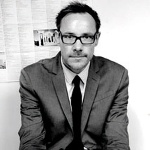Leverhulme Trust
Research Project Grants
Sciences
- Award winner: Robert Cernik
- Institution: University of Manchester
- Value: £247,737
Using diffracted X-rays to form images with chemical and structural information
- Award winner: Jennifer Thomas
- Institution: University College London
- Value: £383,431
The path to CP violation in the neutrino sector: mega-ton water detectors
Humanities
- Award winner: Emma Spary
- Institution: University of Cambridge
- Value: £191,798
Selling exotic plant products in Paris, 1670-1730
Biotechnology and Biological Sciences Research Council
Research grants
- Award winner: Eileen Devaney
- Institution: University of Glasgow
- Value: £2,939,455
The BUG consortium, building upon the genome: using Haemonchus contortus genomic resources to develop novel interventions to control endemic GI parasites
- Award winner: Tracey Chapman
- Institution: University of East Anglia
- Value: £501,187
Functional significance and regulation of the reproductive “transferome”
National Institute for Health Research
Efficacy and Mechanism Evaluation programme
- Award winner: Timothy L. Jackson
- Institution: King’s College London
- Value: £2,240,168
StereoTactic radiotherapy for wet age-related macular degeneration (STAR): a randomised, double-masked, sham-controlled clinical trial comparing low-voltage X-ray irradiation and as needed bevacizumab, with as needed bevacizumab monotherapy
- Award winner: Gregory Lip
- Institution: University of Birmingham
- Value: £779,084
IMPRESS-AF: improved exercise tolerance in heart failure with preserved ejection fraction by spironolactone on myocardial fibrosis in atrial fibrillation
Health Technology Assessment programme
- Award winner: Paul Ramchandani
- Institution: Imperial College London
- Value: £1,535,067
Preventing enduring behavioural problems in young children through early psychological intervention: Healthy Start, Happy Start
In detail

Award winner: Rodney Harrison
Institution: University College London
Value: £1,606,000
Assembling alternative futures for heritage
This is an interdisciplinary research programme aiming to develop a broad, international and cross-sectoral comparative framework for understanding “heritage” in its most expansive sense. Heritage is fundamentally concerned with assembling futures. This programme will compare a range of conventional and unconventional future-making practices from a number of different heritage and heritage-like fields. It aims to facilitate co-creation and sharing of practical knowledge across these various domains of practice, which are rarely considered collectively, to contribute to the development of innovative and sustainable approaches to heritage conservation. “I am very excited [to work on a project] which will help us to understand how current speculations regarding what (and how) to conserve in the present actively shape our material, ecological and social futures,” said Rodney Harrison.
Register to continue
Why register?
- Registration is free and only takes a moment
- Once registered, you can read 3 articles a month
- Sign up for our newsletter
Subscribe
Or subscribe for unlimited access to:
- Unlimited access to news, views, insights & reviews
- Digital editions
- Digital access to THE’s university and college rankings analysis
Already registered or a current subscriber?